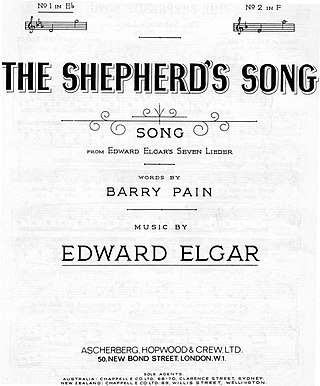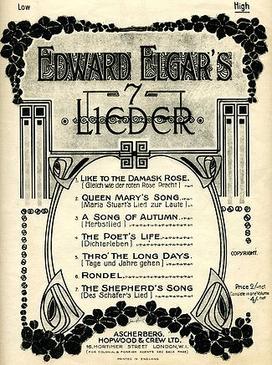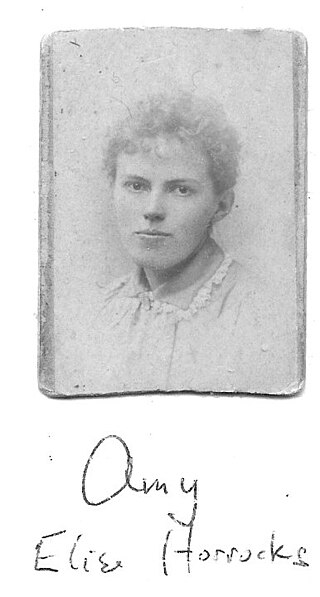
John Liptrot Hatton was an English musical composer, conductor, pianist, accompanist and singer.

Ira Frederick Aldridge was an American-born British actor, playwright, and theatre manager, known for his portrayal of Shakespearean characters. James Hewlett and Aldridge are regarded as the first Black American tragedians.

The Padlock is a two-act 'afterpiece' opera by Charles Dibdin. The text was by Isaac Bickerstaffe. It debuted in 1768 at the Drury Lane Theatre in London as a companion piece to The Earl of Warwick. It partnered other plays before a run of six performances in tandem with The Fatal Discovery by John Home. "The Padlock" was a success, largely due to Dibdin's portrayal of Mungo, a blackface caricature of a black servant from the West Indies. The company took the production to the United States the next year, where a portrayal by Lewis Hallam, Jr. as Mungo met with even greater accolades. The libretto was first published in London around 1768 and in Dublin in 1775. The play remained in regular circulation in the U.S. as late as 1843. It was revived by the Old Vic Company in London and on tour in the UK in 1979 in a new orchestration by Don Fraser and played in a double-bill with Garrick's Miss In Her Teens. The role of Mungo was, again, played by a white actor. Opera Theatre of Chicago have recently revived the piece (2007?) where, it would seem, the role of Mungo was changed to that of an Irish servant.
This is a selected list of W. S. Gilbert's works, including all that have their own Wikipedia articles. For a complete list of Gilbert's dramatic works, see List of W. S. Gilbert dramatic works.

Othello is the titular protagonist in Shakespeare's Othello. The character's origin is traced to the tale "Un Capitano Moro" in Gli Hecatommithi by Giovanni Battista Giraldi Cinthio. There, he is simply referred to as the Moor.

”The Shepherd’s Song” is a song written by the English composer Edward Elgar in 1892. The words are by Barry Pain.
”Like to the Damask Rose” is a poem either by Francis Quarles called "Hos ego versiculos", or by Simon Wastell called “The flesh profiteth nothing”. It was set to music by the English composer Edward Elgar in 1892.
"Queen Mary's Song" is a song written by the English composer Edward Elgar in 1889. The words are by Tennyson, sung by Queen Mary I of England as she plays a lute in scene 2, act 5 of his 1875 play Queen Mary: A Drama.

Seven Lieder is a set of songs by the English composer Edward Elgar published together in 1907, by Ascherberg, Hopwood & Crew Ltd.
Mary Hannah (May) Brahe was an Australian composer, best known for her songs and ballads. Her most famous song by far is "Bless This House", recorded by John McCormack, Beniamino Gigli, Lesley Garrett and Bryn Terfel. According to Move.com.au: "She was the only Australian woman composer to win local an international recognition before World War II," having "290 of her 500 songs published. Of these, 248 were written under her own name, the remainder under aliases.
Hubert Leslie Woodgate was an English choral conductor, composer, and writer of books on choral music.

Florence Aylward was an English composer known for ballads.

Amy EliseHorrocks, a life-long pacifist, was an English music educator, composer and pianist, born to English parents and Hannah Horrocks in Rio Grande do Sul, Brazil, where it is suggested that Francis Horrocks was constructing tramways. Amy had an elder sister, Marian, also born in Brazil, but who died there in 1862 aged 1 year. Contrary to one report, she did not have a brother. She had a close association with the Royal Academy of Music as both a student, teacher and Fellow and enjoyed a degree of professional success, including several performances of her work at the Proms.

Stephen Bourne is a British writer, film and social historian specialising in Black heritage and gay culture.
Lawrence Benjamin Brown was an American singer, composer and pianist born in Jacksonville, Florida. He is best known for his arrangements of Negro spirituals, many of which he performed as accompanist for Paul Robeson, performing on piano and singing harmony.

"Vienna, City of My Dreams" is a 1914 song composed by the Austrian Rudolf Sieczyński who also wrote the lyrics. The 1957 film Vienna, City of My Dreams takes its title from the song.

Irene Luranah Pauline Aldridge was an English opera singer in the United States and Europe who unofficially "broke the colour barrier" for Black opera singers of Richard Wagner in 1896, well before Grace Bumbry.
Florence Margaret Spencer Palmer was a British composer who wrote several hymns and a piano pedagogy textbook. She published some of her works under the name Peggy Spencer Palmer.

Alma Goatley Temple-Smith was an English musician and composer. From 1935 to 1936, she was president of the Society of Women Musicians.












